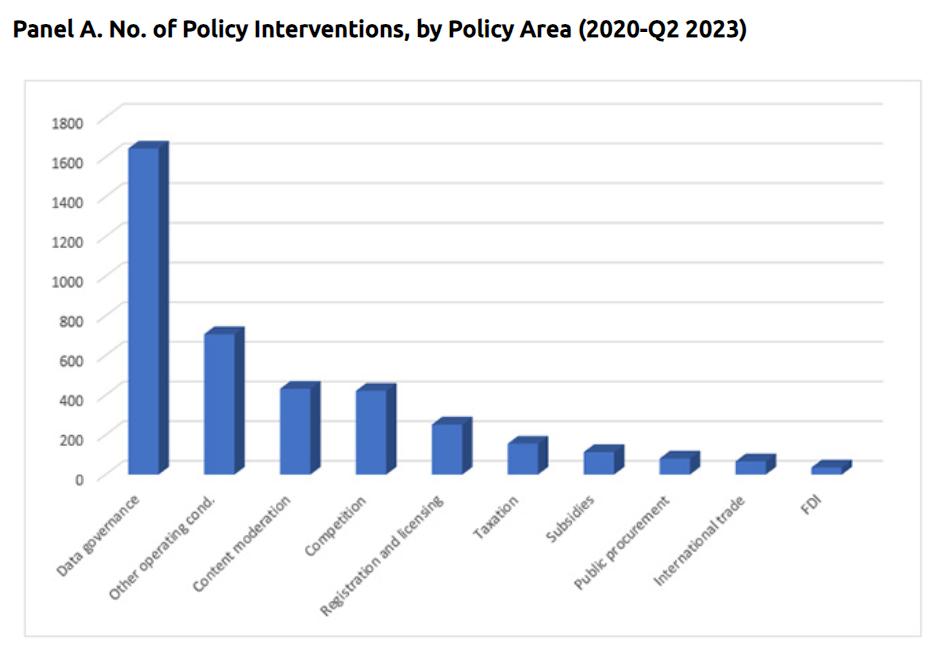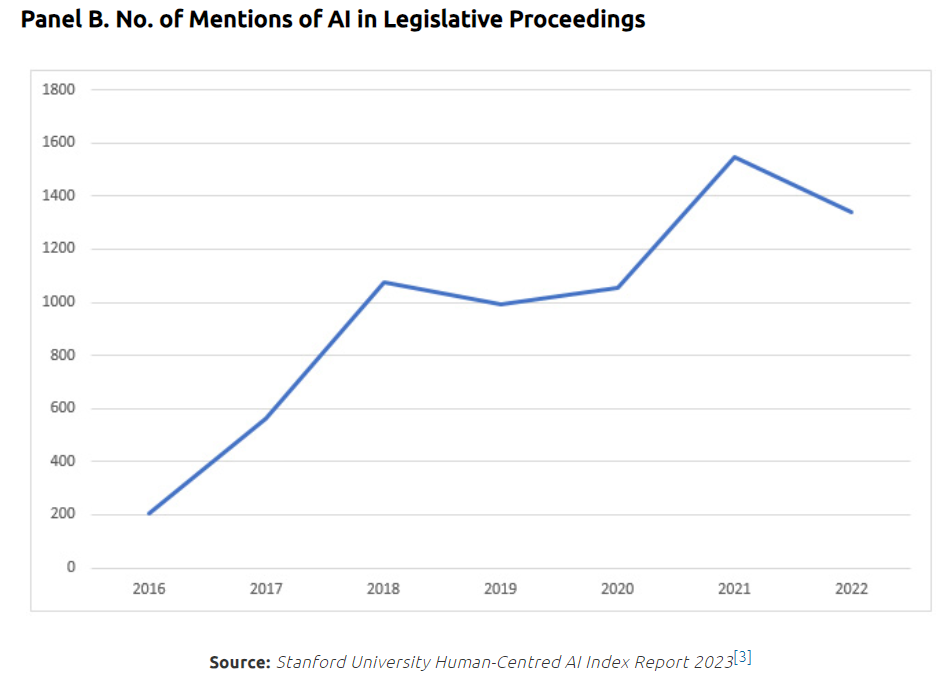
A case for international digital standards: The world’s digital economy is rapidly evolving, and trade in digital services lies at the heart of this transformation. As data flows across borders with service transactions, ensuring privacy, cybersecurity, and interoperable standards becomes crucial for a seamless digital trade ecosystem. However, the proliferation of divergent national standards on privacy, cybersecurity, AI, and cloud computing poses challenges to cross-border technology cooperation.
In response to this pressing issue, the T20 India policy brief calls upon the G20 to focus on developing international standards for trade in digital services. This brief analyses the importance of international digital standards for the inclusive growth of the global digital services sector.
The COVID-19 pandemic accelerated the growth of digital trade, making it imperative to ensure that the components and software supporting digital technologies can communicate effectively using a common language. Divergent national standards not only add to compliance costs but also hinder the ability of businesses, especially micro, small, and medium-sized enterprises (MSMEs), to connect across borders and access technology on a global scale. Moreover, these divergences threaten the inclusiveness of digital trade opportunities and the development of global value chains (GVCs).
READ I State finances on the mend as revenues, capex pick up
G20’s Leadership Role
The G20, as part of its efforts to reduce the global digital divide, has a unique opportunity to demonstrate leadership in supporting the multilateral standardization system and development bodies. Emphasizing inclusivity in the international standards-setting processes and promoting multistakeholder participation is essential for achieving interoperable regulations for an open, inclusive, and digitally transformed services sector. The G20’s Digital Economy Working Group plays a critical role in preparing the ground for international standards-setting discussions and fostering awareness about the importance of interoperable regulations.
Advantages of International Digital Standards
Adoption of international digital standards can offer numerous benefits to businesses, consumers, and regulators. These standards reduce regulatory uncertainty and compliance costs for businesses, enhance productivity, enable access to larger markets, and foster global interoperability. Moreover, they promote convergence in regulations, provide a launchpad for innovation, and facilitate trade by reducing barriers and managing security risks.


The article highlights the risks associated with unilateral regulations, which have been triggered by concerns about cybersecurity, safety, and privacy. To avoid further fragmentation, countries must prioritize the incorporation of interoperability into their regulatory processes and consider international standards when the technology reaches maturity. Policymakers must utilize open, transparent, and consensus-based international standards to ensure global fitness-for-purpose.
Recommendations to the G20
- The policy brief puts forth several recommendations to the G20 to facilitate the development and adoption of international digital standards:
- Engage actively in a multistakeholder approach to hasten the development and adoption of international digital standards in critical and emerging technologies.
- Boost efforts to reconcile cybersecurity and privacy standards to support seamless digital services trade.
- Strengthen the development of AI standards and guidelines, particularly in light of new generative AI models.
- Support local adoption of international digital standards to enhance the resilience of global value chains.
- Ensure that digital standards conform to WTO disciplines on Technical Barriers to Trade (TBT).
- Undertake public education and capacity-building measures to promote business and government uptake of international digital standards.
The T20 India policy brief provides a compelling case for the G20’s attention to developing international digital standards to enhance the inclusive growth of the global digital services sector. By promoting multistakeholder participation, reconciling cybersecurity and privacy standards, and strengthening AI guidelines, the G20 can pave the way for a thriving digital trade ecosystem that fosters innovation, lowers trade costs, and bridges the digital divide. Adopting international digital standards will be critical for realizing the full potential of the digital economy and promoting global economic prosperity.
(This article has been written with artificial intelligence inputs.)
